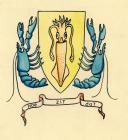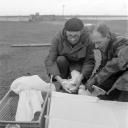Sea research from climate to biodiversity
Our research themes
Latest news and blogs
Novel ships, data and instruments
NIOZ provides the marine scientific community with state-of-the-art research vessels, data and instruments. We manage the Dutch research fleet and develop innovative equipment, supporting scientific exploration of oceans, seas, and coastal environments.
A story of 150 years
The history of NIOZ Royal Netherlands Institute for Sea Research dates back to the founding of the Zoological Station in 1876. Today we are the second largest of the NWO national centres of expertise.





























